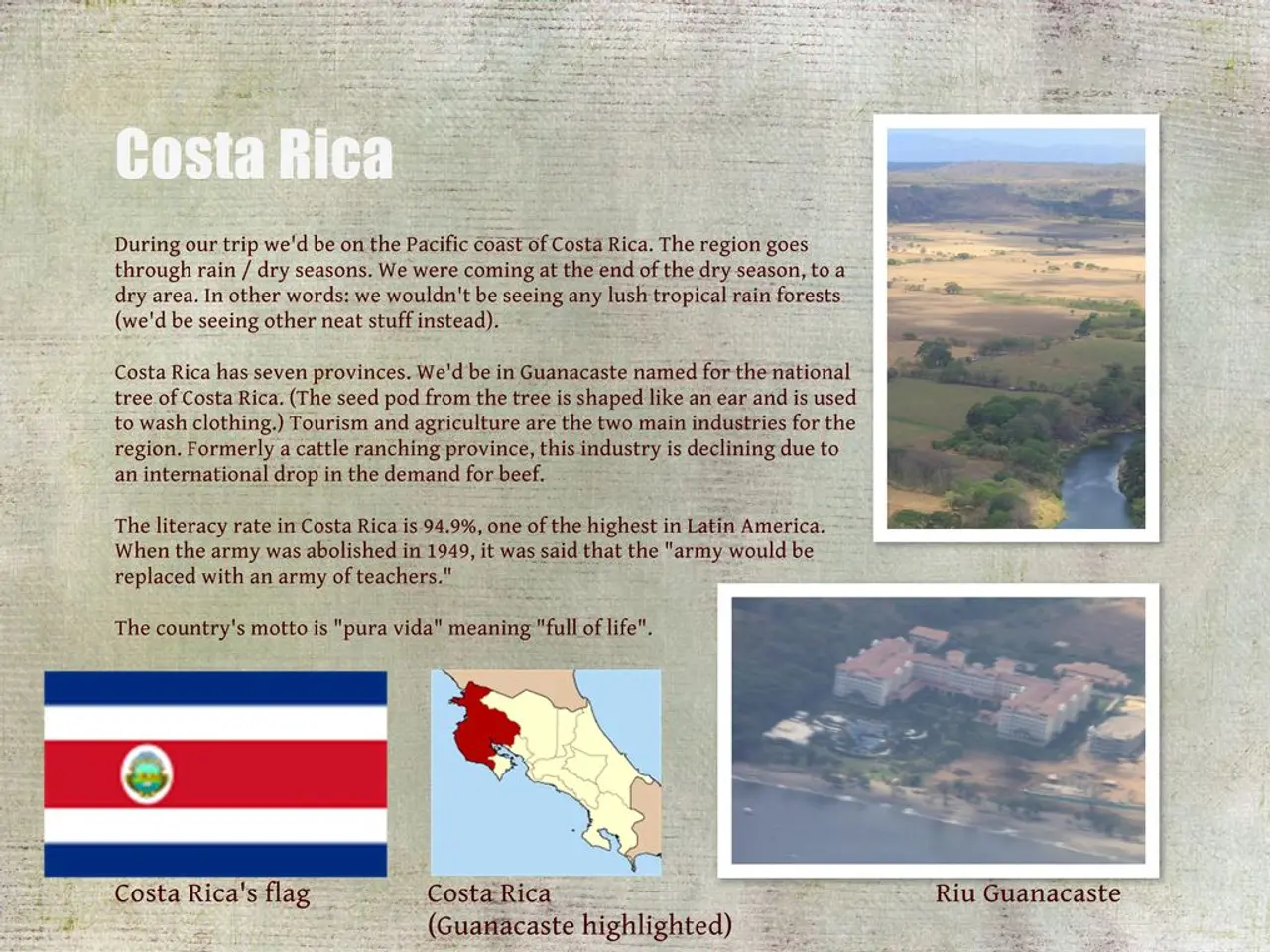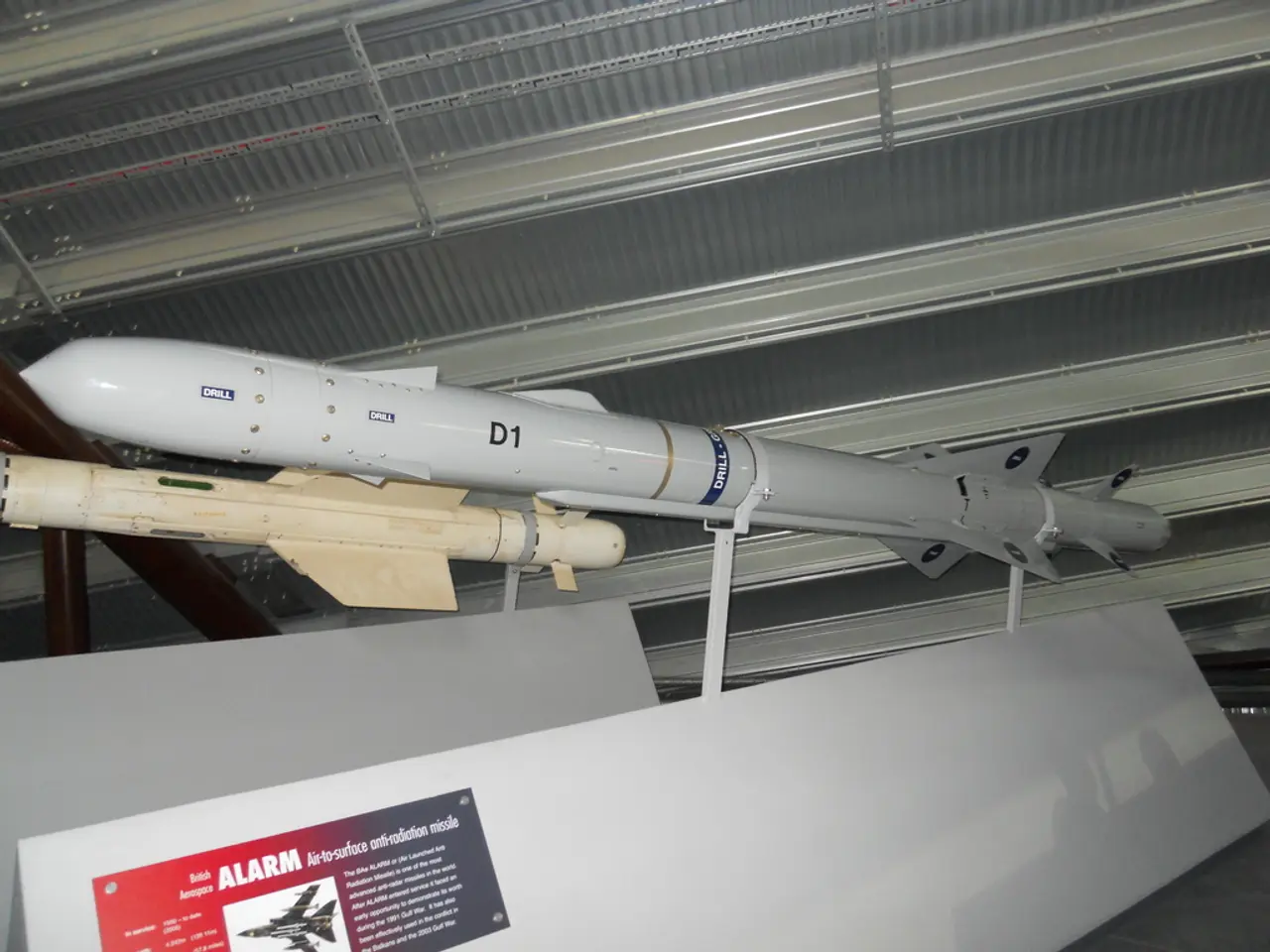Statehood Criteria in Palestinian Territories: Defining the Essential Elements
In the world of international relations, the recognition of statehood is a significant factor that determines a nation's standing and influence. This article explores the complexities surrounding statehood recognition, focusing on the cases of Palestine, Kosovo, and Western Sahara.
As permanent observers to the United Nations, Palestine, Kosovo, and Western Sahara can access most UN meetings and documentation, maintain missions at UN headquarters, and participate in discussions. However, they are not yet full members, a status that carries significant benefits. Being a full member of the UN effectively acts as de facto recognition, providing sovereign integrity in the event of derecognition by one or more states, and a basis for equality irrespective of size and strength.
The Montevideo Convention (1933) established four criteria for statehood: a permanent population, a defined territory, an established government, and the capacity to enter into relations with other states. These criteria establish that a state must have stable control intended to be permanent over a specific territory and population. Recognition by other nations, while significant, does not strictly create statehood if the factual criteria are unmet.
The relationship between recognition and statehood is nuanced. Recognition enhances an entity’s legal and diplomatic capacities but does not strictly create statehood if the factual criteria are unmet. Recognition decisions are political and can influence an entity’s international legitimacy and practical status.
For instance, Switzerland was a permanent observer for 56 years before joining as a full member of the UN in 2002. On the other hand, the process of who is a state and who has the right to recognize other states is not regulated by any treaty in international law. This leaves room for political considerations and conflicts, as seen in the cases of Kosovo and South Sudan, both of which emerged from conflict and are still fighting for recognition and legitimacy.
Currently, Palestine has almost 150 recognitions, Kosovo has around 180-190 recognitions, and Western Sahara has over 50 recognitions. However, recognition of statehood or fulfilling the Montevideo criteria does not automatically lead to UN admission. The UN Security Council requires nine of its 15 members to vote in favor of a candidate state, as well as the approval of all five permanent members (China, France, Russia, the UK, and the US).
France, Canada, and potentially the United Kingdom are among nations considering recognizing a Palestinian state. Palestine is listed as a state entitled to appear before the International Court of Justice, a significant step towards full recognition. However, the Palestinian territories are currently the focal point of the conflict between Israel and Hamas, adding another layer of complexity to the recognition process.
Non-membership in the UN can lead to unequal trade and economic relations, isolation, and mistreatment. This is evident in the cases of Western Sahara and Nagorno-Karabakh, where territory can be lost if a state is not a member of the UN.
Gezim Visoka, a peace and conflict studies scholar and statehood expert at Dublin City University, Ireland, stated that recognition effectively exists through other measures. Recognition of statehood is crucial for a state to function internationally, enter into international agreements, and avoid annexation or occupation.
In conclusion, the recognition of statehood is a complex and political process. While the Montevideo Convention provides clear criteria for statehood, recognition decisions are influenced by political considerations, historical precedents, and ongoing conflicts. The cases of Palestine, Kosovo, and Western Sahara serve as examples of this complex reality, highlighting the importance of understanding the nuances of statehood recognition in the international arena.
- The complexities surrounding statehood recognition are evident in the cases of Palestine, Kosovo, and Western Sahara, non-members of the United Nations who are striving for full membership but still relying on recognition from other countries for their international legitimacy.
- Politically-motivated decisions on recognition can influence an entity's international standing and practical status, as seen in the cases of Palestine, Kosovo, and Western Sahara, where the lack of UN membership has resulted in unequal trade and economic relations and potential loss of territory.
- Statehood recognition is a critical factor for a state to function internationally, enter into agreements, and avoid annexation or occupation, as emphasized by Gezim Visoka, a peace and conflict studies scholar who highlights that recognition exists through various measures beyond UN membership.







